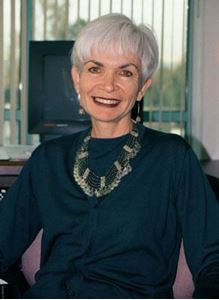
I had the privilege of interviewing Judith Stacey for the Annex Sociology Podcast.
Joseph Cohen asked me if I had any ideas for guest hosting the podcast, and this had been on my mind for a while — the cohort of women who brought feminism into academia in the 1960s and 1970s. In the ongoing conversations about the relationship between activism and sociology among early career scholars, we can learn a lot from this earlier generation. I have a little list of dream interviews in this vein — or something like an oral history project — and the podcast gave me a chance to explore it.
For my generation of gender researchers (whether we recognize it or not), the connections that she and others made between patriarchy and family structure were foundational. Most people today don’t realize how important research on China was to that development (see also Kay Ann Johnson and Ruth Sidel). In the U.S., this fed into the battles over welfare, welfare reform, and intersectionality in the U.S. And in academia, the formation of the Council on Contemporary Families, of which Stacey was a co-founder (which I have worked with as well).
Stacey already had a background teaching history in high school, and a masters degree in Black history, when she decided to switch to a PhD program in sociology, and immediately took on the world-historical question of patriarchy, feminism, and socialism, and traveled to China in the late 1970s. I said to her (lightly edited):
I want to just pause a little bit on this, just to — you know, one of the things I want to bring us around to is the discipline today, or feminism and academia today — but I just want to pause a little and just think about you as a graduate student in a time when sociology was about one-third of the people getting PhDs in the seventies were women in sociology, it’s a lot more now, over 60 percent. And the idea of, “I’m going to travel all the way around the world to a country where I can’t speak the language, that’s going through a tremendous revolutionary period” — I mean, you use the word ‘chutzpah’ to describe this, but I think it’s a certain kind of courage.
On the question of feminism and sociology, I asked, about her work in the 1980s:
So do you feel like, from that period and the momentum that you and your cohort brought into academia from the energy outside, when we look at the discipline of sociology now — is what we have now that we have established a feminist pole within the discipline, has the core of the discipline been changed, or has it just opened up to allow sort of a feminist section?
Her answers on this, and everything else, are super interesting and inspiring.
Here is some of Stacey’s writing, which I’ve been reading (and teaching) for about 30 years, that we reference in the interview:
- Stacey, Judith, and Professor of Contemporary Studies Judith Stacey. 1983. Patriarchy and Socialist Revolution in China. University of California Press.
- Stacey, Judith, and Barrie Thorne. 1985. “The Missing Feminist Revolution in Sociology.” Social Problems 32 (4): 301–16. https://doi.org/10.2307/800754.
- Stacey, Judith. 1993. “Good Riddance to ‘The Family’: A Response to David Popenoe.” Journal of Marriage and Family 55 (3): 545–47.
- Stacey, Judith. 1996. In the Name of the Family: Rethinking Family Values in the Postmodern Age. Beacon Press.
- Stacey, Judith. 1998. Brave New Families: Stories of Domestic Upheaval in Late-Twentieth-Century America. University of California Press.
- Stacey, Judith. 2011. Unhitched: Love, Marriage, and Family Values from West Hollywood to Western China. NYU Press.
